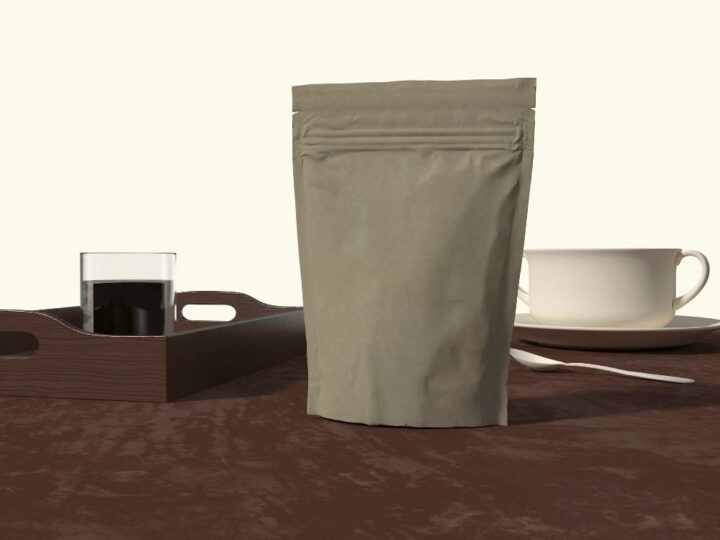Minimalist Home Essentials: Why Bag Filters Are a Must-Have
If you are a minimalist, survivalist, DIY-er, or someone who loves to prepare themselves, their home and their family for emergencies, then you need to consider incorporating bag filters into your lineup of home preparedness goods, or even as an active part of your daily water and air filtration routine.
Bag filters are cheap, effective, and can help to eliminate or reduce many harmful contaminants in both water and air, making them a great choice for a lot of applications.

What Are Bag Filters?
Bag filters are simply a form of sediment filter that is shaped into a long sock-like bag. These filters come in different sizes, mounting configurations, micron ratings, and materials, but they all serve a similar purpose, namely to remove physical particulates from the air and water.
Bag filters are often used in industrial applications such as glass making metalwork and machining, to clean up shards and bits of metal and glass particulate created during these processes; they are also widely used as a way of filtering exhaust from the air in chemical and industrial manufacturing plants, usually used in large arrays with several dozen or even several hundred filters at work simultaneously.
While industrial uses are their most common applications, bag filters can also be used at home. You can use them to filter the air or water in your home, though some specialty mounting apparatuses may be called for, depending on your pipe and duct work. These can also be used in specialty setups for microbrewing or home wine-making, and are often used for this purpose.
Types of Bag Filters
The major differentiators that distinguish bag filters from one another are the materials they are made of, and their size. Micron rating is also an important factor to consider. A micron is roughly 70 times smaller than the width of a human hair, and the micron ratings on bag filters may vary from 100 microns down to 1.
In terms of materials, most bag filters will be made from polypropylene, a durable synthetic plastic that is commonly used in water filtration applications, as well as for toys, packaging, consumer electronics, and much more.
Polyester bag filters are also available, and some sellers may offer a cellulose, or cotton-based bag filter as well. Filters made from natural materials like cotton require extra caution, as they cannot be used with well water, or water not treated with a disinfectant like chlorine, because microorganisms can live and breed off of a natural media like cellulose.
Polypropylene is your best bet for most home uses, as it offers a wide range of contaminant reduction, is durable, long-lasting, and very cheap.
The Benefits of Bag Filters in a Minimalist Home
While hooking up bag filters to your pipes or air ducts will likely require some adapters, bag filters can also simply be used over a bucket to filter water in cases of emergency. If water access is spotty, or your water gets shut off, you may have cause to be grateful for a supply of bag filters on hand to help improve any water you do have access to.
A cylindrical filter is difficult, if not impossible, to use without a water supply forcing water through pipes at pressure, but a bag filter, especially if coupled with some charcoal or activated carbon, can serve as the basis for a DIY home filtration system in cases of emergency.
Note that bag filters by themselves will generally not be sufficient, as they only remove particulate, or solid matter, from water, while activated carbon does more heavy lifting in terms of reducing chemical and mineral contaminants.
However, to fully maximize your activated carbon’s effectiveness, it is highly recommended to run water through a sediment filter first, to avoid clogging the carbon pores with material.
Air Quality Improvement
Setting up a home bag filter array for your air system can reap great rewards in terms of increased cleanliness and breathability in your home air. If you have people in the house with asthma or allergies especially, bag filters can remove all sorts of common contaminants, including dust, dust mites, pollens, skin flakes, smoke, toxins in the air from cars and factories, and other common airborne particles.
Health Benefits
The more foreign contaminants we can remove from our air and water, the better off we will be. We are organisms, meaning that we are constantly growing, changing, adapting, and becoming new versions of ourselves as our cells die and reform, our bodies take on nutritional content, and shed waste, and so on.
The more contaminants we breathe in, or imbibe in our food and water, the worse these physical processes work, and more and more room for error and ill health effects creeps in. The world is a dangerous place to live, and it is only getting more so in many ways, as our ability to change the face of the planet–and our own bodies in the process–continues to advance at an alarming pace.
Energy Efficiency
Due to the inexpensive nature of polypropylene, you can set up a very cheap, and highly efficient air or water filtration system for your home, business, farm, ranch, or whatever else. In their application as air filters, bag filters are routinely used, cleaned, and re-used, sometimes for years before being replaced.
Bag filters used in water require more regular replacement, as water is harder on substances than air, but you can still get a good 6 months out of a quality polypropylene bag filter, unless your water quality is very bad, in which case more regular replacement may be called for.
Why Bag Filters Are a Must-Have for Minimalists
Minimalists value simplicity, utility, and a range of applications for a given device. Bag filters check these criteria: they are simple, cheap, and can be used in a wide variety of scenarios and applications, with or without access to municipal water.
Bag filters are not a single-filter solution for every water problem–far from it. They are, however, an excellent basic essential that can form an integral part of any number of water filtration setups, from normal life conditions to emergency situations.
How to Choose the Right Bag Filter for Your Home
There is no single “right answer” as to what the best bag filter is, or even what the best water filter is in general–it is all contextual, and depends entirely on what is in your water, and what level of filtration you are looking to achieve.
Pick a filter that you can use with your physical setup, and consider whether or not you will need any special housings for the bag filters, or whether they can be used as-is in your existing setup.
Also think about the contaminants you are targeting, which will differ depending on water contents and use cases, and pick a micron rating that fits the bill. Talk to a local water dealer or plumber for more ideas and specific suggestions for the water in your area.
Tips to Integrate Bag Filters into Your Minimalist Home
The goal for a minimalist is to have something functional, easy-to-install and service, and relatively care-free once installed. Planning up front is the best way to achieve all of these goals.
Since each home and contaminant situation is different, there is no one right way to go about this–look at the options and your home’s ductwork and piping, and consult with a home specialist to consider your best options.
Conclusion
When a product ticks the boxes of cheap, versatile, effective, and easy-to-maintain, it’s hard to ignore. Bag filters are multi-purpose, can be used in all sorts of ways for a variety of purposes, from simply improving air and water quality, to microbrewing or industrial glassmaking.
They are an item with near endless possibilities, and they are so cheap and easy to stock up on that there’s no reason not to make them part of your emergency preparedness kit, if not part of your daily filtration life.


